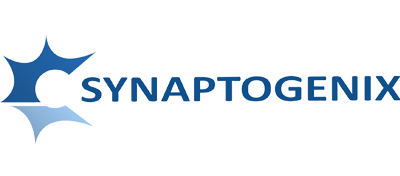Neurotrope to Present Additional Phase 2 Data at the 11th Edition of Clinical Trials on Alzheimer’s Disease (CTAD2018)
NEW YORK, Sept. 26, 2018 /PRNewswire/ — Neurotrope, Inc. (NTRP), a clinical-stage biopharmaceutical company developing novel therapies for neurodegenerative diseases, including Alzheimer’s disease, today announced that updated data on its lead compound, bryostatin, will be presented during the 11th Edition of Clinical Trials on Alzheimer’s Disease to be held in Barcelona, Spain from October 24th – 27th, 2018.
Details of the poster presentations are as follows:
|
Title: |
Evidence of Sustained Low Dose Bryostatin Efficacy for |
|
Presentation Theme: |
Clinical trials: Results |
|
Date/Time: |
Wednesday, October 24th, 2018: 1:00 – 4:00 PM |
|
Location: |
Palau de Catalunya Conference Center |
|
Abstract Code: |
LBP14 |
“Leveraging decades of work on the PKC pathway at NIH and other leading institutions, bryostatin uses a novel mechanism of action to generate new, mature synaptic connections and prevent neuronal death in Alzheimer’s disease models,” said Dr. Daniel Alkon, President and Chief Scientific Officer of Neurotrope. “We are highly encouraged by the translation of this work to the clinic, with results from our Phase 2 study in Alzheimer’s disease showing promising early signals of clinical improvement in moderate to severe AD patients, a population largely neglected in drug development. We look forward to presenting these new data at CTAD and to expanding on our understanding of bryostatin in this difficult to treat population through our ongoing Phase 2 study in AD.”
About Neurotrope
Neurotrope is at the forefront of developing a new approach to combating AD and other neurodegenerative diseases. The Company’s world-class science offers the potential to realize a paradigm shift to overcome one of today’s most challenging clinical problems — finding a way to slow or even prevent the progression of AD.
In addition to the Company’s Phase 2 trial of Bryostatin-1 in advanced AD, Neurotrope has also conducted preclinical studies of Bryostatin-1 as a potential treatment for Stroke, Traumatic Brain Injury, and Fragile X Syndrome, and Niemann-Pick Type C disease — rare genetic diseases for which only symptomatic treatments are currently available. The FDA has granted Orphan Drug Designation to Neurotrope for Bryostatin-1 as a treatment for Fragile X. Bryostatin-1 has already undergone testing in more than 1,500 people in cancer studies, thus creating a large safety data base that will further inform clinical trial designs.
Please visit www.neurotrope.com for further information.
Forward-Looking Statements
Any statements contained in this press release that do not describe historical facts may constitute forward-looking statements. These forward-looking statements include statements regarding the Phase 2 study and further studies, and continued development of use of Bryostatin-1 for Alzheimer’s dementia and other cognitive diseases. Such forward-looking statements are subject to risks and uncertainties and other influences, many of which the Company has no control over. There can be no assurance that the clinical program for Bryostatin-1 will be successful in demonstrating safety and/or efficacy that we will not encounter problems or delays in clinical development, or that Bryostatin-1 will ever receive regulatory approval or be successfully commercialized. Actual results and the timing of certain events and circumstances may differ materially from those described by the forward-looking statements as a result of these risks and uncertainties. Additional factors that may influence or cause actual results to differ materially from expected or desired results may include, without limitation, the Company’s inability to obtain adequate financing, the significant length of time associated with drug development and related insufficient cash flows and resulting illiquidity, the Company’s patent portfolio, the Company’s inability to expand the Company’s business, significant government regulation of pharmaceuticals and the healthcare industry, lack of product diversification, availability of the Company’s raw materials, existing or increased competition, stock volatility and illiquidity, and the Company’s failure to implement the Company’s business plans or strategies. These and other factors are identified and described in more detail in the Company’s filings with the SEC, including the Company’s Annual Report on Form 10-K for the year ended December 31, 2017, and on Form 10-Q for the quarter ended June 30, 2018. The Company does not undertake to update these forward-looking statements.
Contact information:
Sam Martin / Ryan Baker
Argot Partners
212.600.1902
neurotrope@argotpartners.com








